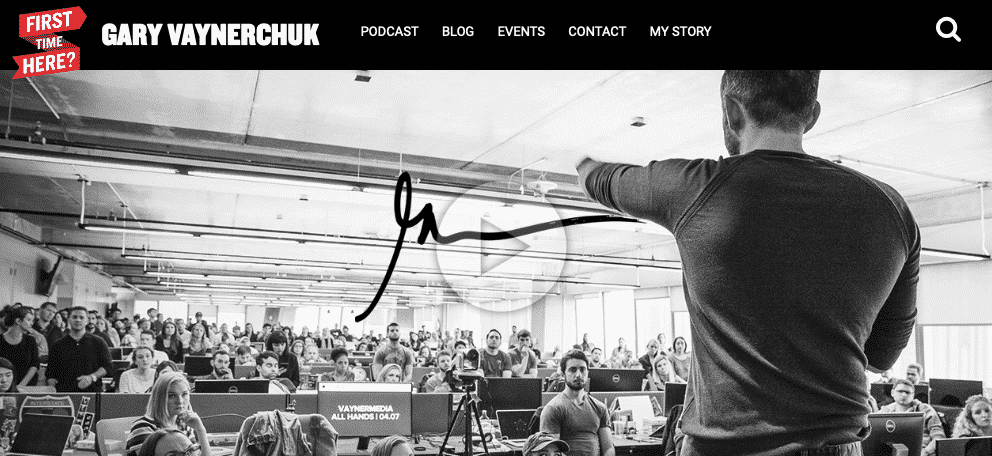This article has been contributed by Allan Borch.
Building your career from the ground up takes a lot of work, especially if you want to be extraordinarily successful within your niche.
Just imagine, when people hear or read your name, they will immediately think about the industry you are in and your contributions to it.
Brands are not just limited to companies anymore. Anything and anyone can be branded.
For example, when you hear the name Elon Musk, what do you immediately think about? You think about technology. You think about his companies, Tesla and SpaceX – and that shows you that personal branding does not always have to include your name.
The same goes for Steve Jobs and Apple, Jeff Bezos and Amazon, Mark Zuckerberg and Facebook, and the list goes on.
This article defines personal branding, outlines its importance, and shows you how it can help you excel as an employee or a business owner. Whether you want to rise to the top of the corporate ladder or build a company from scratch, or something as simple as starting a blog to earn money, it all starts with personal branding.
What is Personal Branding?
“Your brand is a perception or emotion maintained by someone other than you, that describes the total experience of having a relationship with you.” McNally and Speak, 1999
Personal brands can come about intentionally or unintentionally. Think about your friendly neighbor. His personal brand is “friendly”, but it’s probably completely unintentional.
Personal branding is wholly intentional.
Basically, if you want to create a personal brand for yourself, you need to find something unique, so that your brand will stand out.
Being unique will differentiate you from the competition, allowing you to ultimately advance in the career you chose, increasing your connections, and having a more significant impact.
No matter what, remember that every daily interaction in your professional or personal life will shape the public’s opinion about you, and affect your brand.
Personal Branding for Entrepreneurs
Company brands are not just about the products and services they provide. They are also very much about their character, personal relationships with customers, and integrity.
Your company brand may be excellent, but you should also remember that the way a business owner presents themselves can gravely affect the outcome as well – which is why personal branding plays a big factor in contributing to a successful business.
If you want to make more sales and secure more returning customers, you should create a personal brand that will make buyers feel good about their purchase, while still getting what they need or want.
Examples of Successful Personal Brands
A brand can be a large company or a person. Elon Musk is a brand and the same goes for companies like Coca-Cola. Almost everyone around the world knows these names, and what they are associated with.
Here are other effective personal branding examples to give you a better idea.
Gary Vaynerchuk
He is known for his commitment to hustle, and that is his brand. He grew a small liquor store into a successful e-Commerce business. Whether you want to promote your products or promote your blog, Gary is known for his effective strategies.

Bill Nye
What is Bill Nye known for and what is his personal brand? Of course, you know that he is the “Science Guy.” He has one of the most effective personal brand strategies. Not only is he known for being a science enthusiast. His persona and his look are instantly recognizable as well. With his background in science and engineering, he effectively became a trusted person, so whatever Bill Nye says, it has to be accurate, right?

Tony Hawk
Tony Hawk is known by many as a pro-skater. He might not be the best skater there is, but because his branding is so effective, any normal person who has zero knowledge about skateboarding will instantly associate Tony Hawk’s name with skateboarding. The same goes for people like Shaun White, a professional snowboarder, and Kelly Slater, a pro surfer.

The Benefits of Personal Branding
As we can see from the people mentioned so far, personal branding helps your audience perceive you as an expert in your niche. Even if your business does not mention your name, having a successful personal brand means that your audience will quickly associate your name with the name of your business or your profession.
Personal branding does not only benefit business owners. You can also use it to your advantage as an employee. Let’s say you want to excel at your job. You want the higher-ups to notice you and help you advance up the company hierarchy. By establishing an effective personal brand, you will differentiate yourself from your colleagues and gain access to new opportunities.
A lot of people have unique ways of growing their personal brand such as building an online presence, creating a blog, or using content marketing.
If you’re not convinced that you need to start branding yourself ASAP, here are some more benefits of personal branding.
The Right People Will Find You
If you’re successful in establishing your personal brand, the right people will find you – whether they’re new customers or people within your industry.
Let’s say you are a guitar player and you build a personal brand of being the “guitar guy” on your Facebook or Instagram page. The right people in the business will find you. Who knows? You might get discovered and asked to go on tours or get hired to record music for singers.
You Will Build Trust
Because the right people will find you due to your brand and expertise, you will also gain the trust of these people, which will build your network and credibility.
With more people trusting you in the work you do or the products you sell, you will ultimately make more sales and increase revenue.
You Will Have New Opportunities
With your credibility and the trust people have in you, doors to new opportunities will open. It may be new clients or customers, new revenue streams or a new job opportunity or promotion.
How To Build Your Personal Brand
If you are interested in creating a personal brand for yourself, the first thing you should be aware of is that it will take time. Building a personal brand does not happen overnight.
There are six steps to building a successful personal brand.
- Build the brand
- Cultivate credibility
- Create quality content
- Open doors for opportunities
- Maintain consistency
1. Build the Brand
To start building your brand, make sure you:
a. Define Your Brand
What do you want to be known for? Before giving yourself a personal brand, make sure you know what you want to be known for or associated with. Once you figure that out, you can start making plans, but make sure you stick to the timeline.
Also brush up on some branding 101, so you know exactly what makes a brand and how to best go about establishing your own.
b. Create an Online Presence
Before creating an online presence to represent your personal brand, it is essential to clean up any existing online presence that exists that contradicts what you want to become and be known for.
We have all made mistakes that we regret, so make sure any of the things that will affect your image cannot be found on the internet.
Let’s say you have had your fair share of drunk moments that have made their way onto Facebook and Instagram, make sure you remove them – unless that is the image you are going for.
- Do a quick Google search of your name
Make sure nothing that can tarnish your image will show up on the results of a quick Google search. If there is anything that you think can harm your online image, make sure you take care of it before launching your brand.

- Create an online presence that reflects what you are and your skills
Once you have a clean slate, it’s time to create an online presence that will revolve around the image you want to create for yourself. Post content that showcases your talents and expertise.
2. Gain Brand Credibility
OK, at this point, you have built the foundation of your personal brand. Now it’s time for you to gain credibility.
If your niche is visual in nature, social media channels like Instagram and YouTube are perfect choices for you.
Once you have chosen your platform, it’s time to build and engage an audience by strategically releasing relevant content in the right places.
Tips for Building a Solid Strong Social Media Following
Establishing and growing your audience on social media can be a lot easier said than done, especially if your competitors have strong presences. But there are some tried and tested tips for growing your social media following.
- Choose the right channel/s based on your target audience
- Release content and monitor your analytics
- Leverage insights from your data to replicate your most successful content

3. Create Quality Content Over Quality
Content is key in establishing your online presence, which makes it a vital part of your brand’s digital marketing strategy.
Content can be used to boost eCommerce sales, increase affiliate marketing revenue, establish authority and credibility, raise brand awareness, and boost engagement, plus so much more.
But content comes in many forms. If you can’t decide what kind of content to put out there, data is your best friend. Analyze and use the data you gathered from previous posts to find the type of content your audience engages with the most.
Find Your Unique Selling Point
Once you’ve collected enough data to identify the content that gets the most attention, you’ll probably find your unique selling point (USP). From there, you can figure out ways to sell your brand even more.
Side tip: Marketing is not free, and it will take time to get organic followers through SEO and social media. If you need to spread the word about your personal brand quickly, spending money on ads to promote your posts can be a useful option.
4. Open Doors for Personal Branding Opportunities
By creating high-quality content, you create more opportunities for you and your brand, like promotions, blog exchanges, speaking gigs, partnerships, and more.
To go that extra step further than simply publishing content, try these approaches to promote awareness of your brand:
- Network at industry events, in-person and online.
- Join online forums
- Join social media groups
Aside from these examples, there are so many more activities you can join and routes you can take if you want to get known for something, even in the workplace.
5. Be Consistent
Finally, after testing the waters with all of these tactics, make sure you do the ones that work consistently. Your audience may think it’s a gimmick with a hidden agenda if you are not steady in communicating what your brand stands for.
You should always maintain consistency online, offline, in public, and at private events. One wrong move can kill your brand, so make sure you are ready to be consistent to gain more credibility and to succeed.
Key Takeaway
Because competition is rife these days, it’s essential to purposefully brand yourself so that you can stand out and make an impact in the eyes of your target audience.
Personal branding should be top of mind when you post on social media, walk into a meeting or dial into a conference call.
Now that you know how to create a personal brand for yourself, it’s time to get started!
_
About the author: Allan Borch is the founder of Dotcom Dollar. With almost 10 years of digital marketing experience, he wants to help entrepreneurs and business owners build and monetize their own successful online business. Connect with him on LinkedIn, Twitter and Youtube.
The post How to Build Your Personal Brand: 10 Top Tips for Success first appeared on JUST™ Creative.
No comments:
Post a Comment